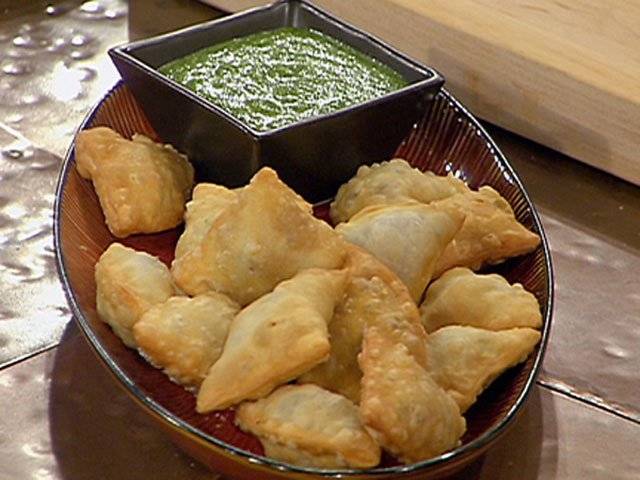LAHORE Food outlets, hotels, restaurants and bakeries, functioning in the provincial metropolis, are playing havoc with the lives of its dwellers as they use unhygienic and reused cooking oil and ghee in their edibles. They are also spurring the birth of new diseases and contributing to old ones. This has come to light in a survey conducted by The Nation. They are not only using locally-produced oil, but many of them are also consuming cooking oil and ghee made by unregistered companies, the survey has further found. This bad practice (of using the lowest quality of oil) has been continuing in Lahore for the past many years, if not decades, it also emerged in the survey. Many, if not most, of the shopkeepers, handcart vendors and/or stallholders, no matter however and where from they operate (it may a nook of a residential block or any big commercial area), can be seen frying pure Lahori foods like 'halva poori, 'chargha (roasted chicken), shami kabab, chicken, mutton and beef poora, fish samosa, 'pakora, 'chappal kabab, French fries, and 'jaleby in substandard oil. They use the cooking oil and ghee over and over again. Some vendors were found to be using the oil for months, ignoring the side-effects of the reuse. The cleverer of the sweetshop owners also mixes fresh oil with the used oil only to give it a fresh look. The leading restaurants and bakeries of the city are also not lagging behind in the practice. They were also found using oil old by as many as a week. In some cases, even longer usages of oil have come to light, as they keep the frying material stowed away in the equally bad kitchens of their outlets in order to cash on the growing trend of fast food and fried edibles among the City dwellers during the winter season. As the evening approaches, the Lahorites tend to eat fried items, particularly fried fish and chicken, to beat the biting cold. But what they ignore is the hidden risk of diseases stemming from the very delicious foods. The unhygienic ingredients, cleanliness (rather, the uncleanliness), and bad sanitation conditions under which they eat are also ignored, according to the survey. An employee of a sweetshop confided to this scribe that the most terrible factor in the preparation of the fried items was the mixing engine oils in the cooking oil. This makes the food crispy, he further confided in The Nation. The use of toxic chemical and dye as colouring agents is also rampant in the City. A customer, Muhammad Ameed, said the already substandard cooking oil was reused for many times until it turns dark resembling crude oil. He said, Besides the quality of the oil and ghee being used in the City, the shopkeepers do not clean their cooking utensils. An owner, Liaqat Ali, however said the fried items were very popular among the Lahorites. Its a seasonal business with very small investment, he said. However, he said he only uses fresh cooking oil. The health experts believe that oil used for frying is often of the poor quality, warning that its continuous use could leave negative effects on the human body. They said oil was crude like furnace oil because of excessive use while other pollutants make it worst. Dr Amjad Mehmood Khan told The Nation that during the frying process, the degradation of oil produces harmful compounds. Chemicals in oil become harmful if the oil is boiled repeatedly. Dr Khan observed that oil quality could also be checked through food sensors measuring change in the dielectric constant of the cooking oil. Dr Masood Ahraf, the District Officer of the City District Governments food department, could not be contacted for his version on the situation, despite repeated calls.
Friday, April 19, 2024
Hoteliers feeding new diseases

King Charles's cancer ‘eating him alive,' monarch unable to perform duties: Insider
1:02 AM | April 19, 2024
Mehwish Hayat says she would like to work with Aamir Khan
9:59 PM | April 18, 2024
What caused record-breaking rainfall in UAE?
9:58 PM | April 18, 2024
Donald Trump discusses Ukraine, Middle East, NATO with Polish President Duda
9:57 PM | April 18, 2024
'That'll be awesome,' Rohit Sharma on idea of Pakistan vs India Test series
9:17 PM | April 18, 2024
Hepatitis Challenge
April 18, 2024
IMF Predictions
April 18, 2024
Wheat War
April 18, 2024
Rail Revival
April 17, 2024
Addressing Climate Change
April 17, 2024
Justice denied
April 18, 2024
AI dilemmas unveiled
April 18, 2024
Tax tangle
April 18, 2024
Workforce inequality
April 17, 2024
New partnerships
April 17, 2024
ePaper - Nawaiwaqt
Advertisement
Nawaiwaqt Group | Copyright © 2024





